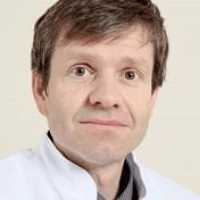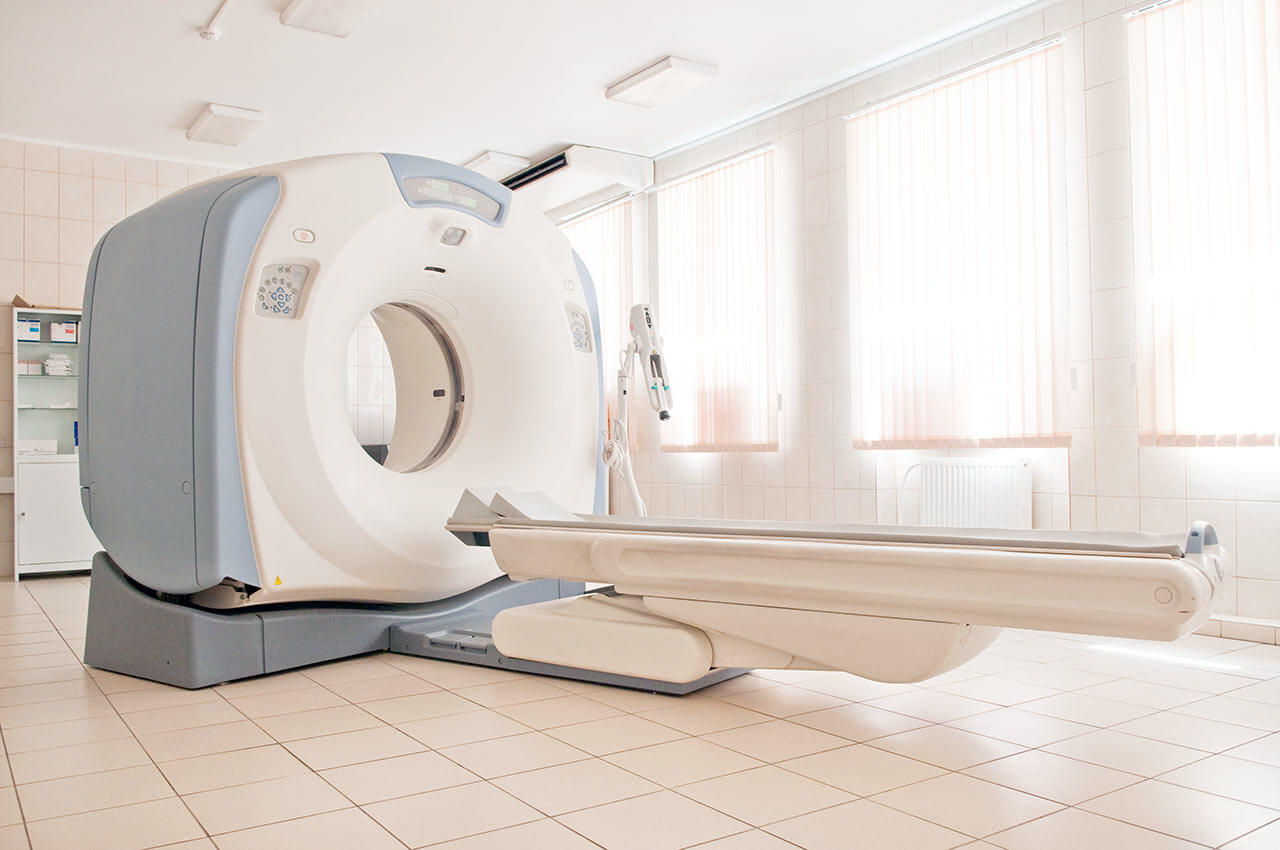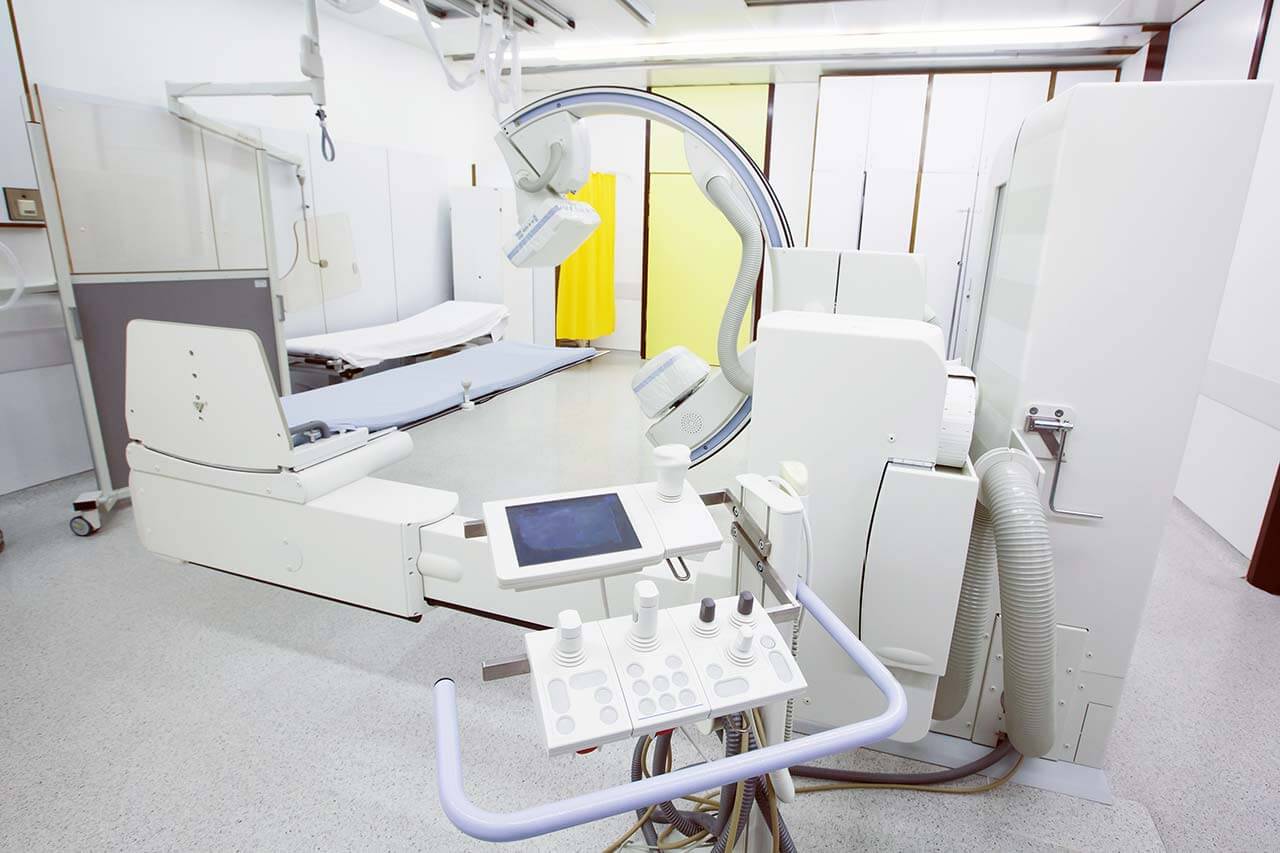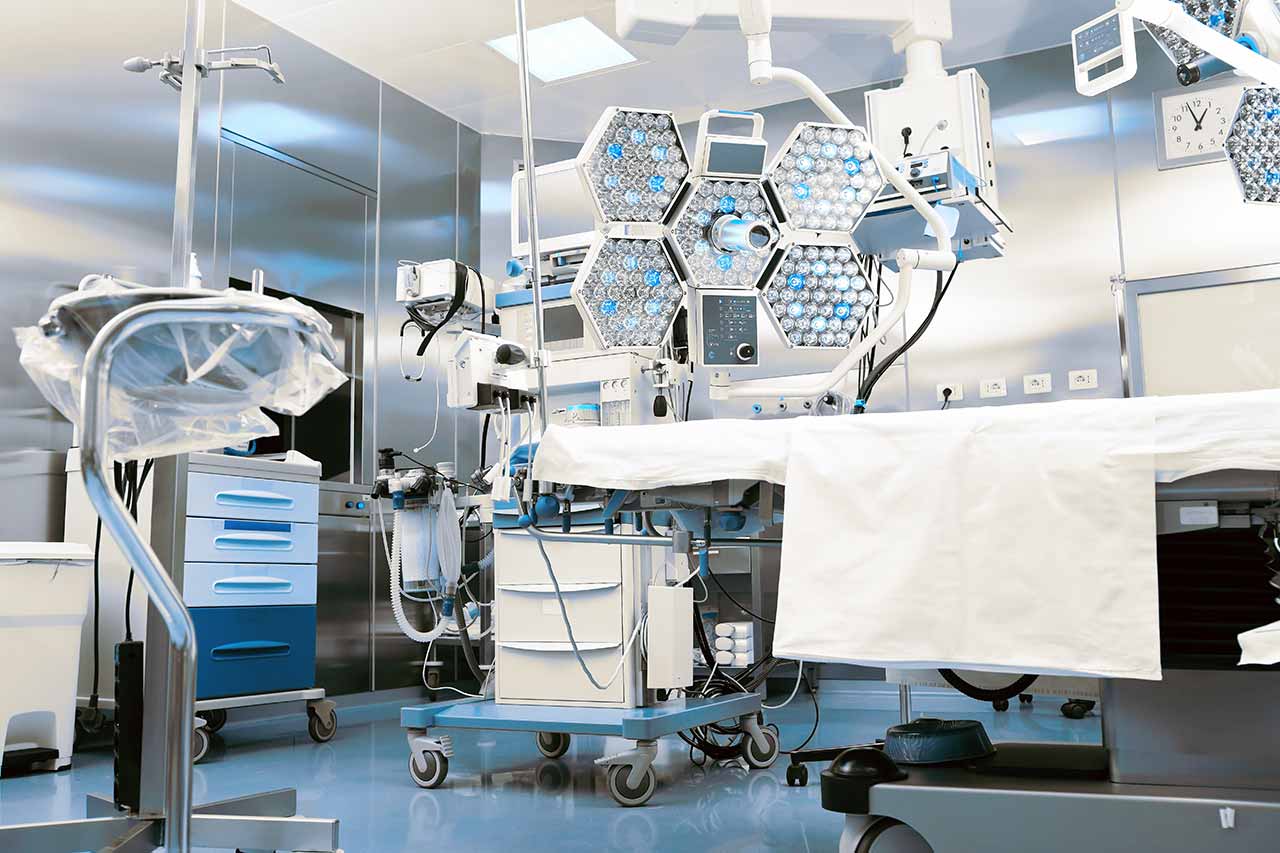
The program includes:
- Initial presentation in the clinic
- clinical history taking
- review of medical records
- physical examination
- laboratory tests:
- general blood analysis
- lipid metabolism
- carbohydrate metabolism
- mineral metabolism
- protein electrophoresis
- immune stasus
- immunofluorescence assay (IFA)
(total Lyme titer or IgG and IgM titers) - enzyme immunoassay (ELISA)
- PCR
- inflammation indicators
- indicators of blood coagulation
- joint aspiration to exclude other causes of
effusion (eg., septic arthritis, gout, pseudogout) (on indication 1000 €) - CSF analysis in patients with meningitis (on indication 2500 €)
- ECG to identify Lyme carditis
- nursing services
- consultation of all leading experts
- development of individual treatment plan
- written statement
Required documents
- Medical records
Service
You may also book:
 BookingHealth Price from:
BookingHealth Price from:
About the department
The Department of Rheumatology and Clinical Immunology at the University Hospital Freiburg offers the full range of services in these medical fields. The medical team of the department specializes in the diagnostics and treatment of diseases of the immune system, in particular, autoimmune and inflammatory rheumatic diseases. Due to its productive research activities, the department offers patients many innovative treatment methods. The high quality of medical care is confirmed by certification of the German Society of Rheumatology. The department is headed by Prof. Dr. med. Reinhard Voll.
Over 8,000 outpatients and 500 inpatients are treated annually in the department. The primary goal of all specialists of the institution is to provide optimal medical care to patients with all types of rheumatological diseases, even in the most complex clinical cases.
It should be noted that the department has excellent diagnostic capabilities: rheumatological and immunological testing (within its own specialized laboratory), all types of modern ultrasound studies (in accordance with the requirements of the German Society of Ultrasound in Medicine), joint punctures and capillary microscopy for early diagnosis of inflammatory connective tissue diseases are available here.
The service range of the department includes:
- Diagnostics and treatment of rheumatoid arthritis and chronic polyarthritis
- Diagnostics and treatment of collagenoses (inflammatory diseases of the connective tissue)
- Systemic lupus erythematosus
- Scleroderma
- Inflammatory diseases of the muscles (myositis)
- Inflammatory diseases of the salivary glands (Sjogren syndrome)
- Diagnostics and treatment of autoimmune inflammatory diseases
- Diagnostics and treatment of spondyloarthropathies
- Ankylosing spondylitis
- Bekhterev’s disease
- Psoriatic arthropathy
- Infectious arthritis
- Diagnostics and treatment of autoimmune vasculitis
- Temporal arteritis
- Granulomatosis with polyangiitis
- Eosinophilic granulomatosis with polyangiitis
- Cryoglobulinemia
- Microscopic polyangiitis
- Diagnostics and treatment of immune cytopenia
- Autoimmune thrombocytopenia
- Autoimmune hemolytic anemia
- Leukopenia
- Diagnostics and treatment of metabolic arthropathy
- Diagnostics and treatment of drug-induced disorders of the immune system
- Diagnostics and treatment of other pathologies
Curriculum vitae
- Since 2010 Professor of Rheumatology and Clinical Immunology, Albert Ludwig University of Freiburg.
- Since 2010 Head of the Department of Rheumatology and Clinical Immunology, Board Member of the Center for Chronic Immunodeficiency, University Hospital Freiburg.
- 2009 Head of Clinical Research Group at the Nikolaus Fiebiger Center of Molecular Medicine, at the same time Senior Physician of the Department of Internal Medicine III.
- 2006 Specialization in Rheumatology.
- 2005 - 2010 Senior Physician, Department of Internal Medicine III, University Hospital Erlangen.
- 2004 Habilitation, Faculty of Medicine, Friedrich-Alexander University Erlangen-Nuremberg. Thesis subject: "Significance of immunomodulation for the pathogenetic treatment of inflammatory rheumatic diseases". Venia Legendi in Internal Medicine.
- 2003 - 2009 Head of the IZKF 2 Junior Research Group, University Hospital Erlangen-Nuremberg. Certified as a Medical Specialist in Internal Medicine.
- 1999 - 2003 Fellow at the Department of Internal Medicine III, Friedrich-Alexander University Erlangen-Nuremberg.
- 1996 - 1998 Scholarship of the German Research Foundation, Laboratory of Dr. Sankar Gosch, Division of Immunobiology, Howard Hughes Medical Institute, Yale University School of Medicine, New Haven, Connecticut, USA.
- 1995 - 1996 Scientific Assistant, Department of Internal Medicine III, Friedrich-Alexander University Erlangen-Nuremberg.
- 1993 Awarded the title of Doctor of Medicine (under the guidance of Prof. Dr. med. B. Fleckenstein), Institute of Clinical and Molecular Virology, University of Erlangen-Nuremberg.
- 1993 - 1994 Research Fellow of Clinical Working Groups on Rheumatology in the Max Planck Society at the Institute for Clinical Immunology and Rheumatology, University of Erlangen-Nuremberg.
- 1993 Admission to medical practice.
- 1991 - 1993 Internship, Department of Internal Medicine III, Friedrich-Alexander University Erlangen-Nuremberg. (Head: Prof. Dr. med. R. Kalden).
- 1984 - 1991 Study of Human Medicine, Friedrich-Alexander University Erlangen-Nuremberg.
Photo of the doctor: (с) Universitätsklinikum Freiburg
About hospital
The University Hospital Freiburg is famous for its rich history and is one of the oldest and most prestigious medical facilities in Germany (one of the three best medical institutions in the country). The hospital was based on the Faculty of Medicine of the Albert Ludwig University of Freiburg, which celebrated its 550th anniversary in 2007. It should be noted that the hospital is proud of its world-renowned specialists, many of whom during their work here have become Nobel laureates.
The medical facility represents all fields of modern medicine. It consists of 42 departments, 11 institutes and 10 interdisciplinary centers. The highly qualified doctors of the hospital deal with the treatment and rehabilitation of patients with both common and rare diseases. All departments and institutes of the hospital take an active part in fundamental researches of international scale, due to which patients have access to the very latest achievements of medicine, advanced diagnostic methods, state-of-the-art medical equipment and proven effective methods of therapy.
The hospital has a variety of medical achievements, for example, the world's first TIPS procedure, the first implantation of the Jarvik-2000 artificial heart in Europe, the first robotic-assisted surgery on the brain, and the first combined cardiopulmonary transplantation in the land of Baden-Württemberg. In 2004, the University Hospital Freiburg became the first German hospital, which performed kidney transplantation in the incompatibility of blood groups. At the moment, the hospital belongs to medical centers with the greatest experience in performing such an operation.
An interdisciplinary approach to treatment, highly qualified staff, as well as individual patient care and a pleasant environment are key to the hospital’s success.
Photo: (c) depositphotos
Accommodation in hospital
Patients rooms
The patients of the hospital are provided with comfortable rooms with a pleasant design, which create a conducive atmosphere for recovery. The standard furnishing of the patient room includes a telephone, a free radio and TV, a device for calling medical staff, lockers and a safe, an adjustable bed, a chair and a table. The pediatric departments are designed with play areas. The patient may be accommodated in a single or double enhanced-comfort room (for example, with an ensuite bathroom) at an additional cost.
Meals and Menus
The patients are offered good three meals a day with a large selection of dishes. The patients inform about their wishes to the menu in advance, and this information is transmitted to the kitchen. Throughout the day, patients may drink mineral water and tea, which can be found in the department on special tables. The bedridden patients receive drinks from the nursing staff. Other drinks may be purchased at the hospital’s cafeterias and bistro, where patients can come along with visitors.
If you do not eat some products due to intolerance or other personal reasons, please notify the nursing staff in advance, so that all your wishes to be taken into account when preparing the menu.
Further details
Standard rooms include:
Television
All patient rooms have a free radio and TV. The patients can also watch the hospital’s own 24-hour channel with a varied program and interesting information.
Accompanying person
At the availability of free beds, the accompanying person may be accommodated in the same room with the patient, at an additional cost. In addition, the hospital offers special accommodation conditions for patients requiring long-term hospitalization. Parents have at their disposal special apartments in the children's hospital.





